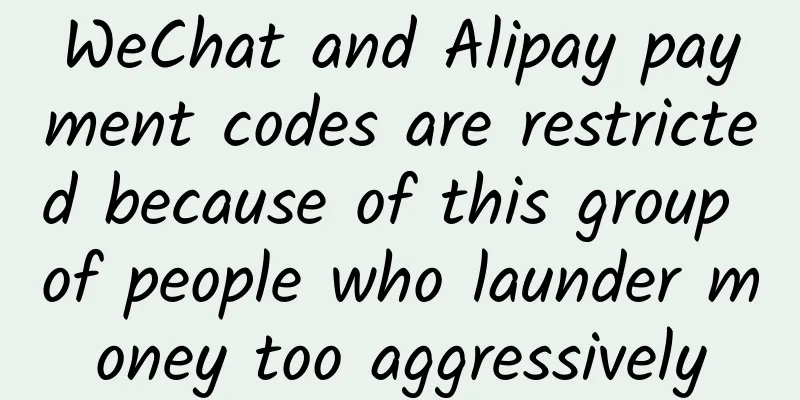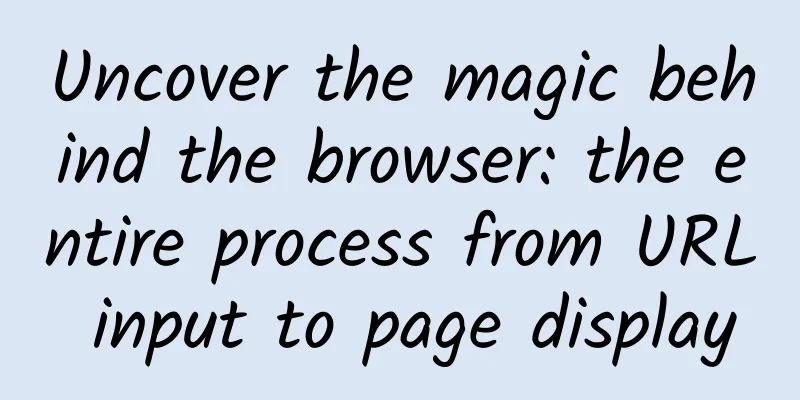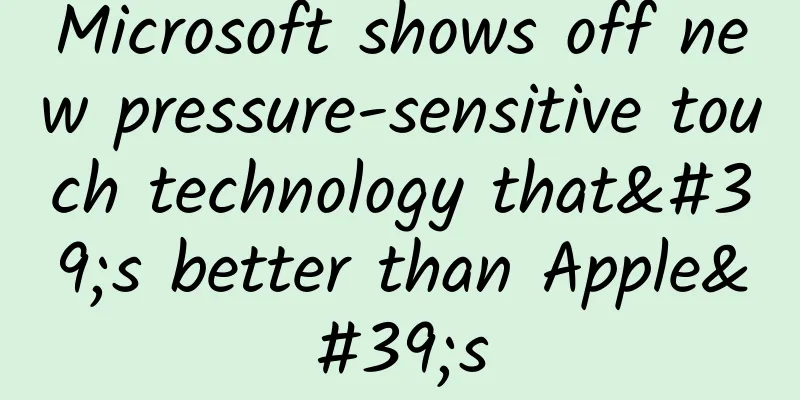WeChat and Alipay payment codes are restricted because of this group of people who launder money too aggressively

|
Early this morning, the message board of Chapingjun was flooded with news about payment codes. It basically means that starting from March 1 next year, there will be restrictions on payment using the payment codes of Alipay and WeChat. As soon as the news came out, topics such as "What exactly does this regulation mean" and "Who will be affected specifically" immediately sparked widespread discussion among everyone. But at the same time, as the news spread, it became distorted. Let’s put it this way, the news that Mr. Bad Review heard from his group friends has become a version of “Alipay and WeChat payment codes cannot be used to do business in the future.” So today I won’t talk about those trivial things. I’m going to dispel a rumor and have a good chat with everyone about this new regulation and what it’s all about. First of all, I want to make it clear to everyone that those who say that payment codes should be completely banned from commercial use either did not read the original text of the regulations carefully, or simply wanted to be a clickbait and create a big news to attract traffic. Because the reviewer went to the official website of the People's Bank of China and found the original text. Simply put, merchant payment barcodes are definitely not restricted, but personal payment codes will indeed be affected. Because one of the provisions is: "For individual payment barcode users with obvious business characteristics, the management of special merchants shall be referred to, and such individual users shall be required to be provided with merchant payment barcodes... Payment services related to business activities shall not be provided to them through personal payment barcodes." To make a long story short, in the future, you will no longer be able to use personal payment barcodes to do business and collect money. Everyone is familiar with personal payment codes. Open your Alipay or WeChat, the payment codes commonly used by most courier friends, and the payment codes printed out by some street stalls are actually personal payment codes. There is a snack stand set up by a colleague in the office that received bad reviews. The code in the picture is the "personal payment barcode for business activities" and is also an object to be adjusted. I think everyone understands what I mean. So what should the "bad review snack stand" do if it wants to continue operating and continue to collect money using convenient payment codes? It’s actually very simple, because according to the notice, you just need to become a special merchant. The specific approach is to find relevant institutions and conduct a wave of verification offline face-to-face or through video verification. After successful verification, you can become a special merchant. Various vegetable farmers, vendors, convenience stores and stalls can continue to collect money using QR codes and go to work with a "certificate". On the other hand, if it has not been verified and you continue to use your personal payment code to do business, then after March next year, you will not be able to receive money with your code. In addition, there is another change in our use of payment codes. The notice stipulates: In principle, personal static payment barcodes are prohibited from being used for remote non-face-to-face payment collection. Static payment codes are actually very easy to understand. They are payment barcodes that can be directly sent to the other party by taking a screenshot and agreeing to them. Therefore, in principle, this kind of personal code can only be used in face-to-face scenarios in the future. The reason why it is in principle is that there are exceptions to this rule. For some remote payment collections that have to be carried out, companies such as WeChat and Alipay can whitelist to a certain extent. Of course, the specific whitelist must also be determined with extreme caution. Seeing this, some friends will definitely ask, whether it is "personal payment barcodes cannot be used for payment collection in business activities" or "restricting personal payment barcodes for remote payment collection", what is the purpose of all this? In addition to letting individuals keep their own affairs to individuals and businesses to businesses, and making everything more standardized and easier to manage, there is actually another point, which is that this approach can actually cut off the funding chains of many black industries. Those of you who have been online for a long time must have seen advertisements like "Looking for a part-time job, easily earn over a thousand yuan a day, just provide a bank card and Alipay account." Behind the seemingly full of temptations, there is actually a criminal "running points" money laundering industry chain, and behind them are large overseas gambling or fraud organizations. In this "running score" process, you need to rely on a large number of other people's Alipay, WeChat or bank card accounts. In the industry's jargon, "water rooms" are people responsible for money laundering, and "canons" are people who buy up Alipay, WeChat and bank card accounts everywhere. During the preparation stage, Canon will purchase accounts from people all over the country through various channels. "You don't have to do anything, just sit back and collect the commission, it's guaranteed to be safe." After a large number of accounts were reserved, as soon as the stolen money arrived, the other side of the water room began to take action. They immediately diverted the money to multiple other secondary accounts through online shopping, QR code transfers, and other methods. For example, a sum of 100,000 yuan of stolen money becomes 10 sums of 10,000 yuan after the first round of diversion. Some of them are in Xiao Li's card, some in Xiao Wang's card, and some in Xiao Zhao's card. (Xiao Li and Xiao Wang are the ones who sold their bank cards, Alipay and WeChat accounts) Then the water room used a similar method to split the money into more accounts. The money originally in Xiao Li's card was divided into the accounts of multiple unrelated people, including Xiao Wang and Xiao Zhao. In this way, a sum of 100,000 yuan in stolen money is diluted into one hundred "normal funds", at which point the fraudsters or gambling teams will transfer the money to their own accounts. This whole process of "making money flow" is called "running points". Do you still remember the card-cutting campaign that has been in full swing this year? The regulations on the "payment code" that have sparked heated discussions today are equivalent to an operation to cut off the cards in the Alipay and WeChat fields. After personal payment codes cannot be used for collecting payments in business activities and personal payment codes are restricted for remote payment, supervision will be simpler, asset tracing for illegal activities will be much easier, and it will also be more difficult for illegal activities to "run points". Of course, there is also a saying that such regulations can better prevent individual business owners from evading taxes. But as far as I know, self-employed individuals will only be taxed if their monthly revenue exceeds 150,000 yuan. Most vegetable farmers and stall owners probably cannot reach this level. . . On the other hand, after these regulations on payment codes are officially implemented, the impact on people like those who leave bad reviews is actually not that big. After all, the only restriction is the "payment code". Functions such as transferring money between friends and receiving payments in groups can be used normally. But for self-employed individuals, the impact is still relatively large, after all, they urgently need to convert their personal codes into merchant codes. Fortunately, the PBOC notice also mentioned that acquiring institutions have the obligation and responsibility to verify merchants, and that they must collect information based on the minimum necessary principle. Merchant certification is also planned to be completed within one year. All in all, this time the "payment code" will definitely be another tough battle. As for how to implement it specifically and how to resolve issues such as the merchant platform’s commission, we’ll just have to wait and see. Finally, I just want to say that this wave is good for the digital RMB! |
<<: QQ Music responds to login anomalies: sporadic issues have been resolved
>>: Detailed explanation of the use and properties of three types of animations in App development
Recommend
Another shocking vulnerability in iOS: iPhone, iPad, etc. are dead
Cybersecurity researchers have warned that Apple&...
Monthly sales of new energy vehicles hit a record high, and overseas sales exceeded last year's total sales. In November, SAIC sold 515,000 vehicles
(Shanghai, December 6, 2023) Today, SAIC Motor re...
Imitation and gap: Are Google's series of hardware launches more hype than substance?
Recently, Google released a series of new hardwar...
OPPO Enco W51 TWS earphones review: good quality, low price and noise reduction, AirPods pale in comparison
Nowadays, whenever we talk about Bluetooth headse...
Guide to using self-media operation materials!
In the process of self-media creation, it is inev...
Microsoft officially responds to the Chinese government's ban on Windows 8
The Central Government Procurement Network recentl...
WeChat JS-SDK Revealed: How many minutes does it take for a WebApp to transform into a “native App”?
On January 10, WeChat public platform opened the ...
The Dirtiest Thing on Eggs: You Might Be Eating Them! (Not What You Think)
Eggs are rich in nutrients. As an essential ingre...
Wow! What a scene!
Loading long image... Source: Xinhuanet Comprehen...
Dragon Tiger Chart Song God: Song God Main Promotion System Jacky Cheung Fifth Period
: : : : : : : : : : : : : : : : : : : : : : : : : ...
Domestic DS7 debuts at Guangzhou Auto Show: Domestic version of the presidential car is unlikely to sell well
When it comes to luxury car brands, German cars i...
Home appliances usher in September, silver, October and November promotion season
A super promotion season for the Chinese home app...
[Fat Bear Science] Is chemotherapy ineffective? Is it the devil? Experts say: If you believe this, you will be infected...
When it comes to chemotherapy, many people first ...
The "free traffic" policy for the entire network is harmful to both others and ourselves
With the advent of 4G, there has been a lot of di...
"Let's sing karaoke!": Why do we sing out of tune?
The protagonist of the movie "Let's Go K...









